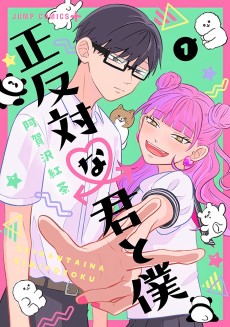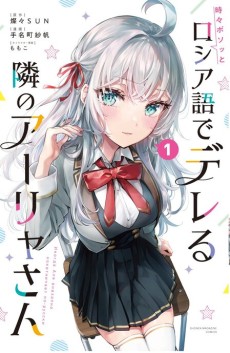RENAI DAIKOU
STATUS
COMPLETE
VOLUMES
4
RELEASE
June 6, 2024
CHAPTERS
39
DESCRIPTION
Half-Japanese Half-Swedish Mari Maria Winter Nanase has everything in life. She was raised in a well-off family in Scandinavia and America, she is popular among the girls, and she has good looks. However, she is missing one thing: she can't talk to boys!
After picking up a book on love in the library, she found a suspicious-looking ad on the back. The ad was for Love Agency, a service promising a "pro in love" to handle your love for you. When she scans it, an agent called "Kon-chan" pops out and promises to help her fall in love with her crush. However, her crush, Masaya Seki, isn't so innocent in his ways either and is also using this app to get with her. How with this pair of hopeless lovers turn out?
CAST

Kokon Aikawa
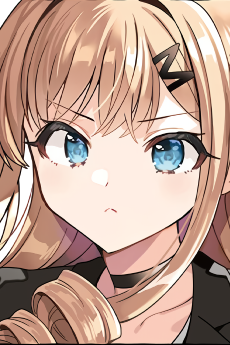
Mari Maria Winter-Nanase

Masaya Seki

Kengo Matsuda
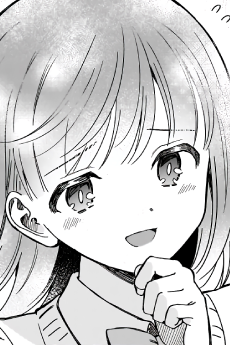
Nobuko

Tesshi

Nanto
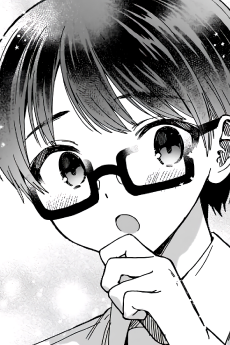
Shinozaki

Pieyon
CHAPTERS
RELATED TO RENAI DAIKOU
![[Oshi no Ko] Cover Art for [Oshi no Ko]](https://s4.anilist.co/file/anilistcdn/media/manga/cover/medium/bx117195-r3kf8eF0xkDJ.png) MANGA Drama[Oshi no Ko]
MANGA Drama[Oshi no Ko]REVIEWS

melamuna
65/100a good manga series ruined by time and patience- but i still adore it anywaysContinue on AniList
Aka Akasaka is one of the most popular mangakas in recent times. He created the instant romance manga Kaguya-Sama: Love is War. A hilarious romance manga that stretches the boundaries of what it takes to tell a story about adolescent romance that's relatable and enjoyable to read while also packing so much heart into its story that readers gradually get attached to the characters. Aka also made Oshi no Ko, a captivating series that tackles the inner workings of showbiz media while also providing crazy scenarios that keep readers furiously hooked. After all of that, Aka decided to serialize a brand new romance manga called Renai Daikou (Love Agency), which got me excited. ***

Love Agency is a romance manga that has your typical quirks and qualities that you would get from other romance mangas, but these tropes are used to bend the plot and present you with something interesting and unexpected. We follow the main guy, Masaya Seki, who hired a love agency expert named Kengo Matsuga to help him make the popular girl Mari Nanase fall in love with him. However, Mari also hired a love agency expert named Kokon Aikawa, who’s also trying to get closer to Seki. This is a unique plot line, especially in the oversaturated romance genre. The series even goes one step beyond and presents intriguing directions that's unexpected and can definitely keep you on hook for more chapters. As per usual, it has that typical Akasaka comedy that's not as funny as Kaguya-sama, but it's still fun nonetheless.

Other than the romantic aspects of the series, it also presents something that's dramatic. The dramatic tensions of the series can vary from being subtle, heartwarming, and motivational to something that's dark and despair-like. The contrast of the drama that's presented in the series mixed in with its comedic moments balances out and transitions naturally. It doesn't feel like one genre is ruining or overpowering the other. ***

The series has all the right ingredients to be an instant hit with its innovative ideas and Aka’s writing style. However, the series fumbled, unfortunately. Reading from Chapters 1 to 10 can make you feel like the series keeps moving from one major plot point to another. Normally, it would be an interesting take that hooks the audience. But as you keep reading, you will eventually realize that it's a major flaw. The series doesn't provide many moments for us to connect with the characters more, and most of the time there are side characters in the series that it's obvious that there are more plans for them but was unfortunately pushed to the side to keep the main plotline moving. And even then, the main plotline moves so fast that it's so rare to have that downtime moment that a romance manga would always use to build a deeper chemistry for our characters. This doesn't help that the series tries to follow too many plotlines that have a lot of potential to have riveting stories but were unfortunately concluded immediately after the next chapter.
This would have been an easy fix if Aka decided to dedicate a couple more chapters to fully flourish the plotlines he had set out, but due to the series’s low appeal and an unexpected ending, it was unfortunately going to end with low chapters from a series that deserved a lot more if it had the time to do so. ***

If you're a romance junkie like me and planning to read Love Agency, I still think this is a good short read that would entertain you throughout. But the potential to be better than what is right now lingers in you for long.

unspecifieduser
80/100Despite a rough start, an excellent and hilarious romcom. Yet another banger from Aka.Continue on AniListLove Agency had a difficult road to walk, as the followup to the legendary romcom Kaguya, from the esteemed author Aka Akasaka. It made a rough first impression, with a convoluted premise and jokes that didn’t quite land. At the time, I kept up with it for a few chapters before dropping it, disappointed that one of my favorite mangaka seemed to be phoning it in.
I was wrong. Once it finished, and I got around to binging it, I found myself unable to stop reading it. Love Agency is a hilarious and heartfelt romantic comedy, and while it’s not at the heights of its predecessor, it’s a worthwhile series in its own right.

Comparisons to Kaguya will be constant throughout this review, and it’s not just because Love Agency stands within Kaguya’s shadow, the context permeating how 99% of people will approach Love Agency. Love Agency’s approach to love, and romcom writing, is thematically in response to Kaguya. Kaguya was a cerebral series, full of chapters built around some psychological principle or otherwise analytical way of looking at relationships. Love Agency does the same thing, but through the premise of love coaching — and it’s through the framing of it as coaching that Aka says something about analytical looks at love.
Our two protagonists, Mari and Seki, like each other, but are held back from confessing by their personal flaws or hangups. Rather than overthink and manipulate, they each hire the services from the titular Love Agency, getting an assistant that will coach them through an earpiece on how to get the other to fall in love with them, all the way down to exactly what to say in conversation. Mari’s assistant is Kon, a beautiful girl who seems to be experienced in love, yet lives as a shut-in. Seki’s assistant is Pon, a large and seemingly-confident man whose understanding of relationships comes more from books and study. Kon and Pon (which are their nicknames) are not just coworkers but rivals, yet they don’t know the other is coaching the same relationship.
The structure of the first several chapters is that Mari and Seki interact, but both are being fed lines by Kon and Pon, constructing false personas meant to appeal perfectly to the other. The problem with this structure is that it’s unwieldy; it’s asking you to follow four internal threads that don’t quite fit in a single conversation, much less in a manga chapter. Because of this, the characters also don’t get enough time (at first) to stand out, which has the domino effect of making it feel like the manga cares more about its gimmicky premise than it does the characters. Rest assured, this is not the case.
But compare that to Kaguya: It asked you to follow two internal threads, not four, during each conversation. The third major character explicitly was not written with an internal thread, and started out as a device to cause drama in the main two before being fleshed out further. The fourth main character wasn’t introduced until a while later. The premise was much easier to latch onto.
But the thing that’s easy to forget is that Kaguya’s first several chapters aren’t very good. Like, let’s be real. I have a lot of nostalgia for them, but it took Aka a bit to cook. At the time, I assumed this was because Aka was still growing as a writer. But with Love Agency as a second data point in how he writes romcoms, I think the answer is something else: It takes some time to experiment with characters before you figure out what dynamics have the most potential. Both Kaguya and Love Agency start by playing their premises straight, but grow into something more character driven.
In Kaguya’s case, it still stuck with the concept of manipulation games, to try and force the other to confess, for a long time. It was a better structure, don’t get me wrong, and one that an author could get a lot out of. In Love Agency’s case, it quickly moves on from chapters where both Kon and Pon are coaching Mari and Seki in the same conversation and we have to follow that, because it turned out that simply didn’t work very well.
That does not, however, mean that Love Agency wastes or abandons its premise to write more generic slice of life interactions, like some other romcoms I can think of. Because not only do Mari and Seki not know the other is being coached, but Kon and Pon don’t know their rival is coaching the other member of that duo. So what happens when Seki and Kon start talking? What happens when Mari and Pon develop a relationships? Do Kon and Pon have feelings for people, and how does that play into things? Does who each character likes change? The web grows wider and wider, involving side characters as well.
It starts playing with chapters where one character talks about their crush, and another character makes the wrong assumption about who that crush is on (perhaps they even assume it’s on themself). Written by Aka, chapters like that can be gut-wrenchingly hilarious, and were what made me admit I was really enjoying this manga. It builds to emotionally satisfying reveals, where a secret coming out also allows one character’s view about love to influence another.
One of the best parts of Kaguya, and Aka’s character writing, is the detailed relationships. Take any pair of main characters in Kaguya: They have a unique dynamic when alone together that doesn’t come out in a larger group. What they can be open about, and what they can’t, depends upon that specific relationship.
In Kaguya, this was used to bring the characters to life and write fun chapters. But Love Agency feels like it took that same quality of relationship writing, and made it core to the story. The stakes depend upon each unique dynamic between the main cast, and whether other characters learn that those dynamics exist. It’s the main thing you read the series for, and the premise allows for it perfectly — of course Kon and Pon can’t let the paramours of their clients know they’re involved. Of course Mari and Seki struggle with what sides of themselves they can show to others, when they’ve constructed such false personas.
The art sells these situations, for the most part. Personally, I’m sad that Aka has given up on drawing manga, and only writes it. Because perhaps his most underrated skill was his fantastic comedic paneling. Aka perfectly understands how to use panel-to-panel pacing, through panel size and shape and count, to deliver jokes. Jokes are all about delivery, after all. 5mm Nishizawa is not quite up to that task, at least at first. There are points where something is meant to be communicated, but the paneling fails to put the focus on the information the reader needs to be conscious of, and thus it becomes confusing.
But either I got used to their style, or they improved at executing it, because these situations stopped bothering me as it went on. There are punchline panels that felt like they could have been done by Aka, which I consider the highest of praise for a comedy.
Stylistically, Aka relies heavily on narration as usual. I am firmly of the belief that Aka knows how to narrate without it being telling-instead-of-showing — but the line is definitely a bit fuzzy, and sometimes it’s not done as well as it could be. At its best, it helps him create the tone of over-the-top reality that he goes for, but there are a few moments where it does feel like a crutch to get some characterization across. Yet quick and straightforward characterization does, ultimately, fit its identity as a comedy series, that wants to make sure character traits are clear to everyone such that the comedy that plays with them will land.
The main appeal to the characters is the relationships and the absurd situations. The characters are more interesting than the first few chapters give them credit for — Seki’s funniest bits come in later, and Kon and Pon are actual fleshed-out characters. But in general, they aren’t going to stick with you emotionally for years. They’re just extremely good vehicles for absurd situations that make for funny chapters.
If the series was longer, it might have been able to do more with them. I don’t think it needed to be a 200+ chapter behemoth like Kaguya, but it did need another volume or two. Some characters are explored enough. One character gets a backstory that could have dug deeper, yet the manga ends before it had the time to explore it, and is forced to skip past it. Another character never gets a backstory, or deeper look, at all, and it feels like wasted potential. There are also a number of side characters who feel like they could have been straight out of Kaguya, and I really wanted to see more with. Yet we don’t even get a note of what happened to them as an epilogue.
Despite the rushed ending, this is a series I enjoyed almost all of my time with. It didn’t let me take a break from binging it, and gave me enough laughs that I have to call it an 8/10. Maybe I'll lower that to a 7 after sitting on it, if the incompleteness of the characters bothers me more, but almost every moment I had with it was positive.
I enjoyed my journey with the characters. Because it didn’t just rest on the laurels of its premise, milking absurd drama of who knows what about who loves who. By the end of the story, I came to care about all of the characters as genuine friends; the connections they built were truly the treasure they found along the way.
Love Agency is a response to Kaguya in its core thesis. As said near the start of the review, Kaguya was a cerebral series that looked at love in analytical ways. There was nothing wrong with this — it was well aware that the logical angle was used as an emotional defense mechanism by its characters. But it was still a series that reveled in its analysis.
And that’s what Love Agency pokes fun at. By breaking the two halves of the premise into two seemingly-distinct sides, the clients and the consultants, it says something about the difference between romance as logic, and romance as feeling. After all, in spite of their genuinely-insightful expertise, Kon is a shut-in, and Pon hasn’t experienced a relationship himself. Are emotional logicians the best people to listen to, when it comes to love?
It’s like Aka is poking fun at his own writing style. Poking fun at the idea of understanding love from a distance. Embracing it, because it is fun to write that way, while also reminding us that there’s something more.
I was worried Love Agency would be a lazy follow-up to Kaguya. Instead, it was the perfect one.
SIMILAR MANGAS YOU MAY LIKE
![[Oshi no Ko] Cover Art for [Oshi no Ko]](https://s4.anilist.co/file/anilistcdn/media/manga/cover/medium/bx117195-r3kf8eF0xkDJ.png) MANGA Drama[Oshi no Ko]
MANGA Drama[Oshi no Ko]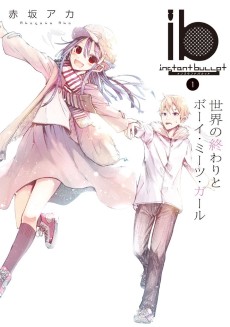 MANGA Dramaib: Instant Bullet
MANGA Dramaib: Instant Bullet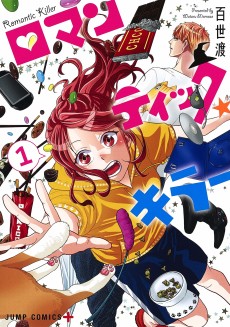 MANGA ComedyRomantic Killer
MANGA ComedyRomantic Killer MANGA ComedyHaji-Otsu.
MANGA ComedyHaji-Otsu.
SCORE
- (3.3/5)
MORE INFO
Ended inJune 6, 2024
Trending Level 1
Favorited by 117 Users


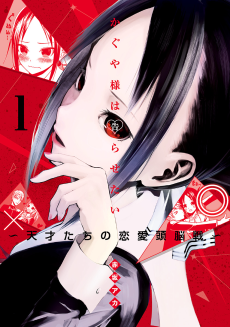

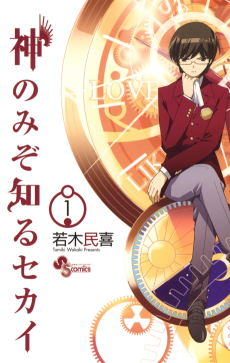
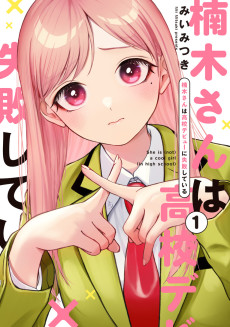
![[Oshi no Ko]: interlude Cover Art for [Oshi no Ko]: interlude](https://s4.anilist.co/file/anilistcdn/media/manga/cover/medium/bx168162-fGSImLRehOOf.jpg)
